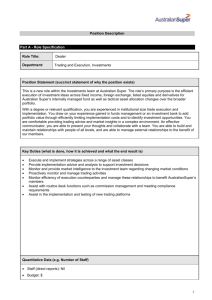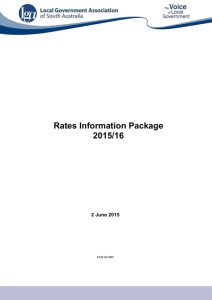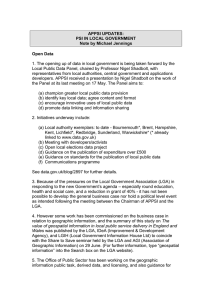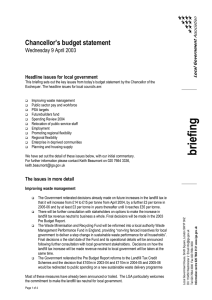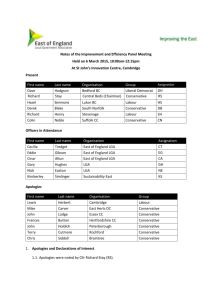Consumer Rights Bill
advertisement
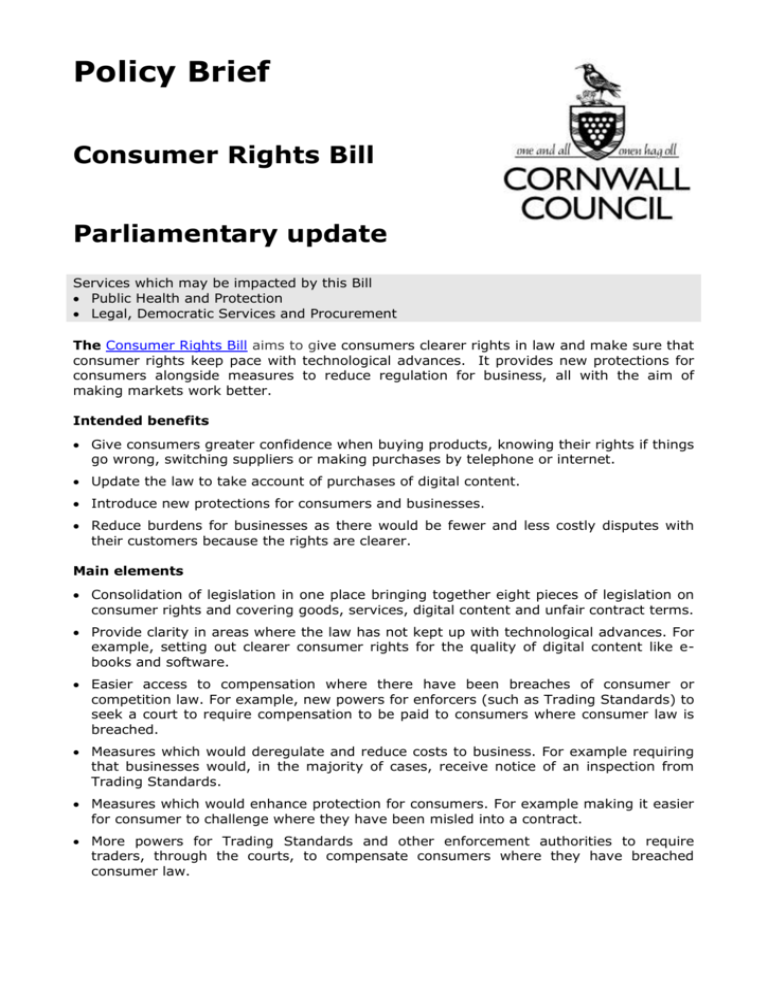
Policy Brief Consumer Rights Bill Parliamentary update Services which may be impacted by this Bill Public Health and Protection Legal, Democratic Services and Procurement The Consumer Rights Bill aims to give consumers clearer rights in law and make sure that consumer rights keep pace with technological advances. It provides new protections for consumers alongside measures to reduce regulation for business, all with the aim of making markets work better. Intended benefits Give consumers greater confidence when buying products, knowing their rights if things go wrong, switching suppliers or making purchases by telephone or internet. Update the law to take account of purchases of digital content. Introduce new protections for consumers and businesses. Reduce burdens for businesses as there would be fewer and less costly disputes with their customers because the rights are clearer. Main elements Consolidation of legislation in one place bringing together eight pieces of legislation on consumer rights and covering goods, services, digital content and unfair contract terms. Provide clarity in areas where the law has not kept up with technological advances. For example, setting out clearer consumer rights for the quality of digital content like ebooks and software. Easier access to compensation where there have been breaches of consumer or competition law. For example, new powers for enforcers (such as Trading Standards) to seek a court to require compensation to be paid to consumers where consumer law is breached. Measures which would deregulate and reduce costs to business. For example requiring that businesses would, in the majority of cases, receive notice of an inspection from Trading Standards. Measures which would enhance protection for consumers. For example making it easier for consumer to challenge where they have been misled into a contract. More powers for Trading Standards and other enforcement authorities to require traders, through the courts, to compensate consumers where they have breached consumer law. House of Commons First reading 1st reading: House of Commons 23 January, 2014 Bill introduced. The Business, Innovation and Skills Select Committee undertook pre-legislative scrutiny of the legislation last year, during which the LGA raised concerns over the Bill's intended restrictions on the ability of trading standards officers to undertake unannounced inspections, where they have reasonable grounds to do so. As a result of campaigning by the LGA, the Government has listened to these concerns and amended the provisions in the Bill to address the local government sector's concerns. Second reading Ahead of the second reading the LGA briefed MPs. 2nd reading: House of Commons 28 January, 2014 The debate was opened by Secretary of State for Business, Innovation and Skills, Vince Cable. The Bill passed without a division and will now be considered by a Public Bill Committee. During the debate, Secretary of State, Vince Cable MP emphasised that "local trading standards officers are crucial in implementing much of this legislation". Meanwhile the Chair of the All-Party Parliamentary Group on Consumer Affairs and Trading Standards Stephen Lloyd MP (Liberal Democrat, Eastbourne) asked the Secretary of State to note pressure on trading standards budgets. The LGA has campaigned to ensure the investigatory work of trading standards officers is not impacted by this Bill Committee stage (opportunity to submit comments) Report stage Third reading House of Lords First reading Second reading Committee stage Report stage Third reading Consideration of amendments 11 February Royal Assent Prepared by: Strategy, Localism and Communications Service Chief Executives Department




